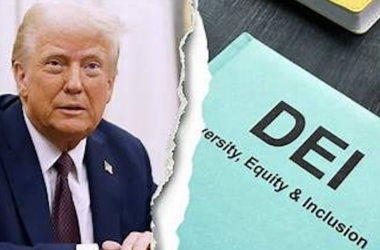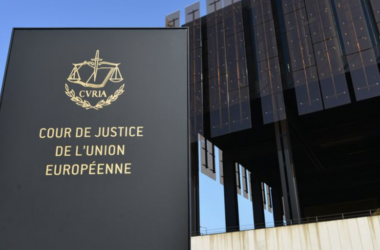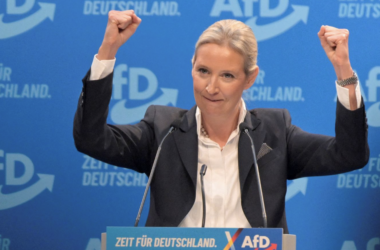Across Europe, a new wave of right-wing leaders and parties has gained prominence by advocating for peace-oriented policies, often directly challenging the dominant pro-NATO and pro-EU establishment narratives on conflicts, particularly the war in Ukraine. Figures such as Viktor Orbán in Hungary, Robert Fico in Slovakia, and members of Germany’s Alternative für Deutschland (AfD) have emerged as vocal critics of policies they claim escalate conflicts rather than resolve them.
Viktor Orbán: Hungary’s Peace Advocate
Hungarian Prime Minister Viktor Orbán has been one of the most prominent voices in Europe advocating for a negotiated settlement in the Ukraine war. He has consistently argued that the EU’s strategy of arming Ukraine and sanctioning Russia only prolongs the conflict and increases suffering. Orbán’s position aligns with Hungary’s broader historical and geopolitical concerns, including its reliance on Russian energy and a desire to maintain pragmatic relations with Moscow.
His key statements and actions include, firstly, a position against EU sanctions. Orbán has criticized EU sanctions on Russia as counterproductive on several occasions, stating they harm European economies more than they weaken Russia. Secondly, he has been constantly calling for negotiations. In his speeches, Orbán has called for an immediate ceasefire and direct negotiations between Ukraine and Russia, warning that escalating military aid risks a broader war. And, of course, he has been calling for the energy security–Hungary has refused to follow other EU countries in cutting off Russian gas and oil, arguing that energy security is a priority for Hungarian citizens.
Repercussions
Orbán’s stance has earned him criticism from EU leaders, who have accused Hungary of undermining European unity. Hungary has faced the funding cuts from Brussels and has been portrayed in Western media as a “Trojan horse” for Russian interests. Viktor Orban has been constantly stigmatized by the left/liberal establishment media as “authoritarian”, “fascist” and “anti-European”
Robert Fico: The leader of Slovakia
In Slovakia, Robert Fico’s return to power as prime minister in 2024 marked a significant shift in the country’s foreign policy. Fico, leader of the SMER-SD party, campaigned on promises to end military aid to Ukraine and focus on domestic issues, a message that resonated with Slovak voters wary of being dragged deeper into the conflict. Calling for the end of military aid, Fico announced Slovakia would cease providing weapons to Ukraine, emphasizing the need for a diplomatic solution. Additionally, the Prime-Minister, criticizing NATO’s role, has questioned NATO’s approach to the conflict, suggesting that continuous military support risks escalating tensions with Russia, and on keeping focus on national interests, he has framed his foreign policy as prioritizing Slovakia’s interests over ideological commitments to NATO or the EU.
Repercussions
Fico’s policies have led to tensions with Brussels and NATO, with critics accusing him of weakening Western resolve against Russia. Slovak media aligned with the establishment has labeled his government as isolationist and pro-Kremlin. Slovak Prime Minister suffered the assassination attack.
Alternative für Deutschland (AfD): A Growing Force in Germany
In Germany, the far-right AfD has capitalized on public dissatisfaction with the government’s handling of the Ukraine crisis and rising energy prices. The party has positioned itself as a pro-peace alternative to mainstream parties, calling for an end to arms deliveries to Ukraine and advocating for a diplomatic resolution.
Key Initiatives and Statements
Protests and Rallies: AfD has organized mass protests demanding an end to military aid for Ukraine and a return to negotiations with Russia.
Energy Policy Criticism: The party has criticized Germany’s reliance on U.S. energy imports and called for reopening dialogue with Russia to restore gas supplies via Nord Stream.
Electoral Gains: AfD’s stance has resonated with voters, particularly in eastern Germany, where historical ties to Russia and economic concerns are more pronounced.
Repercussions
The AfD’s rise has alarmed Germany’s political establishment, leading to increased scrutiny from intelligence agencies and media outlets. Critics accuse the party of exploiting public fears and spreading disinformation, while its leaders argue they represent the voice of ordinary Germans.
Other Figures and Movements
Marine Le Pen in France
Marine Le Pen of the National Rally has also advocated for a more neutral stance on the Ukraine conflict. While not as openly critical of NATO as Orbán or Fico, Le Pen has questioned the efficacy of sanctions and called for a stronger focus on French national interests.
Matteo Salvini in Italy
Although currently part of a coalition government that supports Ukraine, Salvini has previously expressed skepticism about sanctions and military aid. His League party represents a segment of Italian voters critical of EU and NATO policies, and being not so anti-Russian.
Eastern European Conservatives
In countries like Bulgaria and Serbia, conservative leaders have similarly pushed for neutrality, reflecting public opposition to being drawn into the conflict. These leaders often frame their stance as preserving peace and economic stability.
The System’s Response: Media and Institutional Backlash
The emergence of pro-peace right-wing leaders has been met with significant resistance from the EU, NATO, and aligned media organizations. Common tactics used to discredit these figures include:
Labeling as Pro-Russian: Leaders advocating for peace are often accused of being Russian sympathizers, regardless of their actual policies or intentions. This framing is frequently used to delegitimize their positions and stoke public fear.
Economic Pressure: Countries led by these leaders often face threats of funding cuts or other economic penalties from EU institutions.
Media Narratives: Western media outlets frequently portray pro-peace leaders as dangerous populists undermining European unity. This narrative is amplified by think tanks and NGOs aligned with the establishment.
Intelligence Oversight: In some cases, intelligence agencies have increased monitoring of these leaders and their parties, citing concerns about foreign influence.
Public Support and Future Prospects
Despite institutional pushback, pro-peace leaders have found significant support among voters disillusioned with the mainstream parties’ handling of the Ukraine war and its economic fallout. Their rise reflects a broader skepticism of EU and NATO strategies, particularly in regions most affected by energy crises and economic instability.
As the conflict continues, the appeal of pro-peace movements is likely to grow, forcing the EU to confront the limits of its current approach. Whether these leaders can translate their rhetoric into lasting political change will depend on their ability to navigate the challenges posed by entrenched institutional opposition.
A New Political Dynamic
The rise of pro-peace anti-globalist leaders like Orbán, Fico, and the AfD represents a significant shift in European politics. These figures challenge the dominant narratives surrounding the Ukraine conflict and broader EU and NATO policies, offering an alternative vision centered on diplomacy, national interests, and pragmatic governance.
While their positions have provoked strong reactions from the political and media establishment, their growing support suggests a deepening divide in European society. As these movements gain momentum, the EU and its allies will need to grapple with the underlying causes of public discontent and the changing dynamics of power within the continent.




